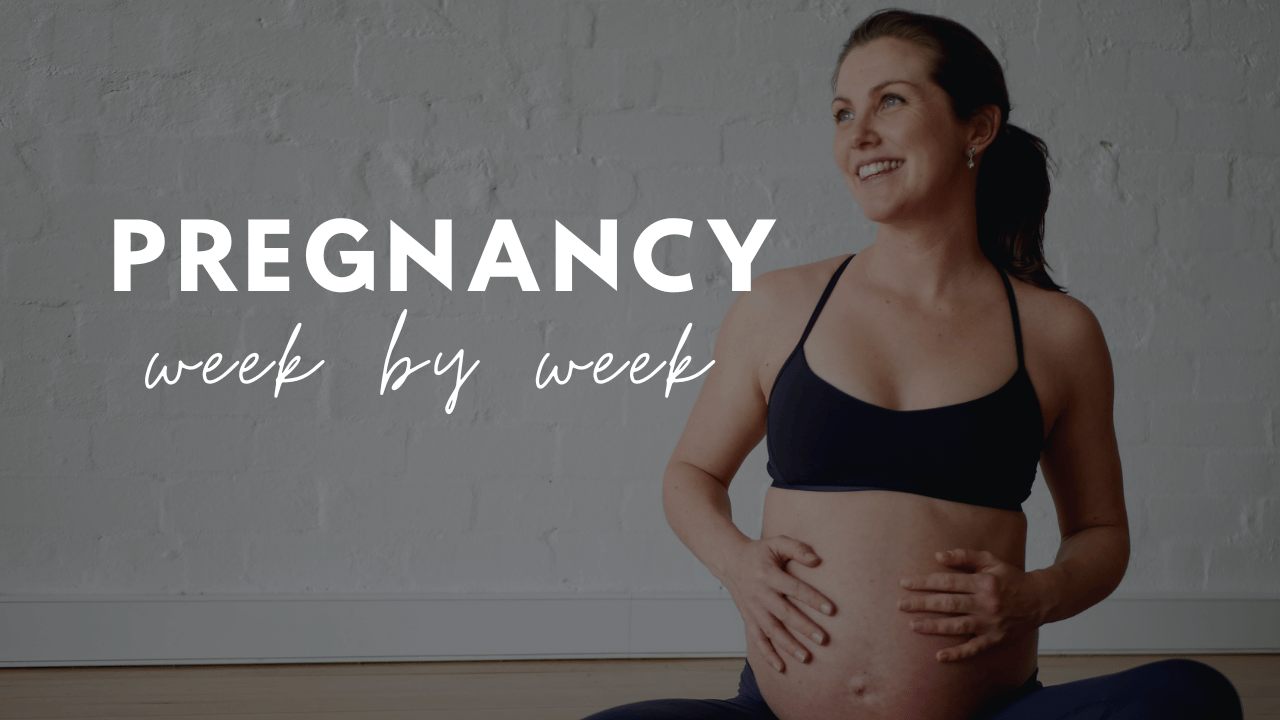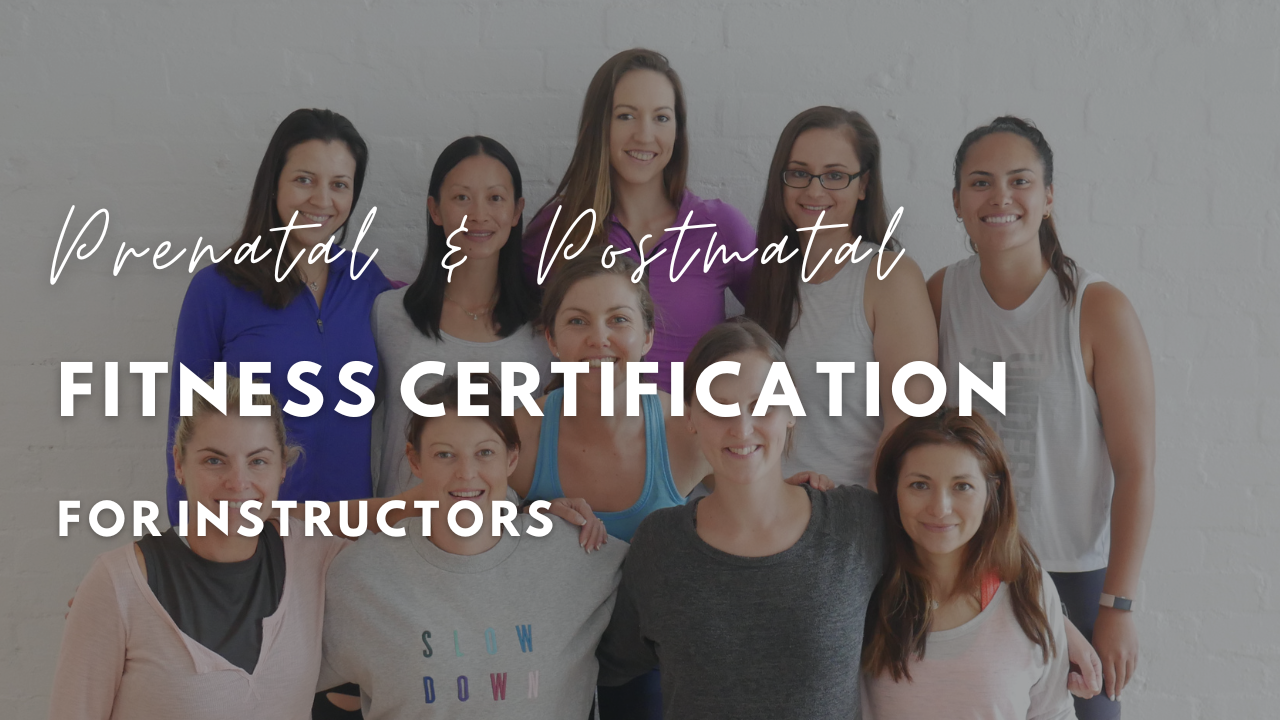Running after Pregnancy: How Soon Can You Start Again?
Sep 06, 2021
Running after Childbirth
I often get questions about running postpartum. So if you are wanting to run after pregnancy then this will be for you.
Are you a new mom looking to get back into running after giving birth? In this post, I will share expert tips and advice on how to safely and effectively start running postpartum.
From building up your strength and endurance to choosing the right gear, we've got you covered. Watch now and get ready to hit the pavement with confidence!
Remember, always consult with your healthcare provider before starting any new exercise routine postpartum.
Exercising after Pregnancy
Returning to fitness after having a baby is a crucial step for many new mothers. As a runner, I know how hard it can be to get back into the swing of things, especially when your body has gone through so many changes.
But running postpartum is not only possible, it's also incredibly beneficial for both physical and mental health. That's why today, I want to talk about how soon you can start running again after childbirth, and what you need to know to do it safely.
Your Body Has Changed
When it comes to returning to running postpartum, many women face a range of challenges. One of the biggest obstacles is simply getting back into the habit of exercising regularly.
After giving birth, many new moms are sleep-deprived, busy with caring for their new baby, and still recovering from the physical demands of childbirth. It can be tough to find the motivation to lace up your running shoes and hit the pavement again.
Emotional Challenges
Another challenge women face is dealing with the emotional changes that come with motherhood. It's common to feel anxious, overwhelmed, or just plain exhausted, and these feelings can make it hard to get back into a regular running routine.
Additionally, there are physical changes that can make running more difficult after childbirth. For example, many women experience weakened core muscles, separated abdominal muscles, and pelvic floor changes, all of which can affect their running form and increase their risk of injury.
Breastfeeding and Running
Furthermore, breastfeeding can also impact running, as it can cause breast tenderness and changes in breast size, making it uncomfortable to run.
All these physical changes can be intimidating, and may make new moms wonder if they'll ever be able to run again.
Despite these challenges, many women are eager to get back into running as soon as possible. But how soon is too soon? It's essential to listen to your body and not rush back into running too quickly.
Wait Until You Have Recovered
In general, most health care providers recommend waiting until at least six weeks postpartum before resuming any high-impact exercises, including running.
However, this timeline can vary depending on the individual's health, the type of delivery they had, and any complications that may have arisen during childbirth.
According to many running coaches and healthcare professionals, it's crucial to undergo a postpartum check-up with your healthcare provider before starting any exercise routine, including running.
This check-up can help identify any potential issues or complications that may affect your ability to run safely.
Additionally, many experts recommend incorporating pelvic floor exercises and core strengthening workouts into your postpartum fitness routine to help rebuild strength and stability in your core and pelvis.
This can help reduce your risk of injury and make running feel more comfortable and sustainable.
Listen to Your Body
One of the most critical insights I've learned about postpartum running is the importance of listening to your body. It's easy to get caught up in the idea of "getting back to normal" quickly, but the truth is, your body has gone through a significant transformation, and it needs time to heal and recover.
If you try to rush back into running too quickly, you risk injury, burnout, or even worse, prolonging your recovery time. Instead, focus on gradual progression, listen to your body, and don't be afraid to slow down or take rest days when you need them.
It's about Your Health
In my own experience, I've found that it's essential to prioritize self-care and patience when returning to running postpartum. It's okay to take things slowly, to focus on rebuilding your strength and endurance, and to celebrate small victories along the way.
Remember, running postpartum is not about getting back to your pre-baby body or fitness level overnight; it's about embracing your new body, honoring its limitations, and finding joy in the process of recovery and growth.
Listen to Your Body
In summary, the key to successful postpartum running is to listen to your body, prioritize self-care, and focus on gradual progression.
Remember to get cleared by your healthcare provider before starting any exercise routine, and don't be afraid to take things slowly or modify your workouts as needed.
Mama Question: Hi Kerryn, My bub's 6 months now and I'd like to get back into running. I'm halfway through the 28 day Pilates challenge. Could you recommend some exercises that would prepare my body for this? Thank you, Jess
From Kerryn: This is a super common question , so I'm glad you asked it and it's up here for any other Mamas also thinking about getting back into running.
The number one thing I want you to do right now is listen to this podcast:
I interviewed Women's Health Physiotherapist, Beth Scott, about this very topic and it's absolute gold.
Get Your Doctor's Clearance
First and foremost, make sure you have clearance from your doctor before starting any postpartum exercise routine. Your body has been through a lot, so it's crucial to give it time to heal.
Start with gentle exercises like walking or light jogging to ease back into running. Don't push yourself too hard too soon.
Invest in a good supportive sports bra to protect your breasts, which may be more sensitive postpartum.
Pelvic floor exercises are also essential for postpartum runners. Strengthening these muscles can help prevent any issues such as incontinence.
Stay Hydrated
Stay hydrated and nourished, especially if you're breastfeeding. Your body needs extra fuel to support both running and milk production.
And most importantly, be kind to yourself. It's okay to take breaks and listen to your body's needs.
Remember, every mom's postpartum journey is different, so don't compare yourself to others. Celebrate your progress no matter how small.
So many valid points, and here are a few of them:
It depends on your prior level of fitness. There is no one time that is perfect for getting back into running. You have to remember too that the impact on your pelvic floor in running, obviously is of higher demand, so it depends on:
1. The affect of your pregnancy on your pelvic floor (from the weight gain, hormones, increased blood volume)
2. The affect of your birth mode of delivery.
3. And how well you have recovered postpartum (and how consistent you have been with your core exercises.
Of course the force of gravity is working against you for the entire time you are running, compared to say a Pilates class when for parts you are lying down, allowing your pelvic floor less pressure from gravity.
Now here is an interesting fact:
Each woman has a different dimension of her pelvic outlet. Which means that if you have a wider pelvic outlet the muscles have to work harder than if you have a narrower pelvic outlet.
Listen to the podcast, as Beth explains this really well.
Pregnancy can change this pelvic outlet area, but genetics also play a big role. So never compare yourself to someone else who is running 10KM with no problems at 6 months postpartum and you're not.
Never compare yourself anyway, because often people don't tune inwards and are not aware they are doing damage until months or even years later.
I often get women with 2, 3 or 4 year olds coming to me with Pelvic Organ Prolapse saying they wish they recovered better post the birth of their baby.
So to answer your question in short:
You need to have a women's health physiotherapist who is SO good at what she does to work with you to ensure your training is not having a negative impact on your pelvic floor.
And then, yes, get going. But start progressively and don't ignore the strength training aspect.
I think I'll create a 'getting back into running' program one day to really help with this. I'll let you know when it's in the works.
The other few things to think about too are:
1. Bra support
2. Shoes (don't wear shoes you've had for years, invest and it will help absorb the impact)
3. Run on a softer surface like a running track rather than hard concrete.






